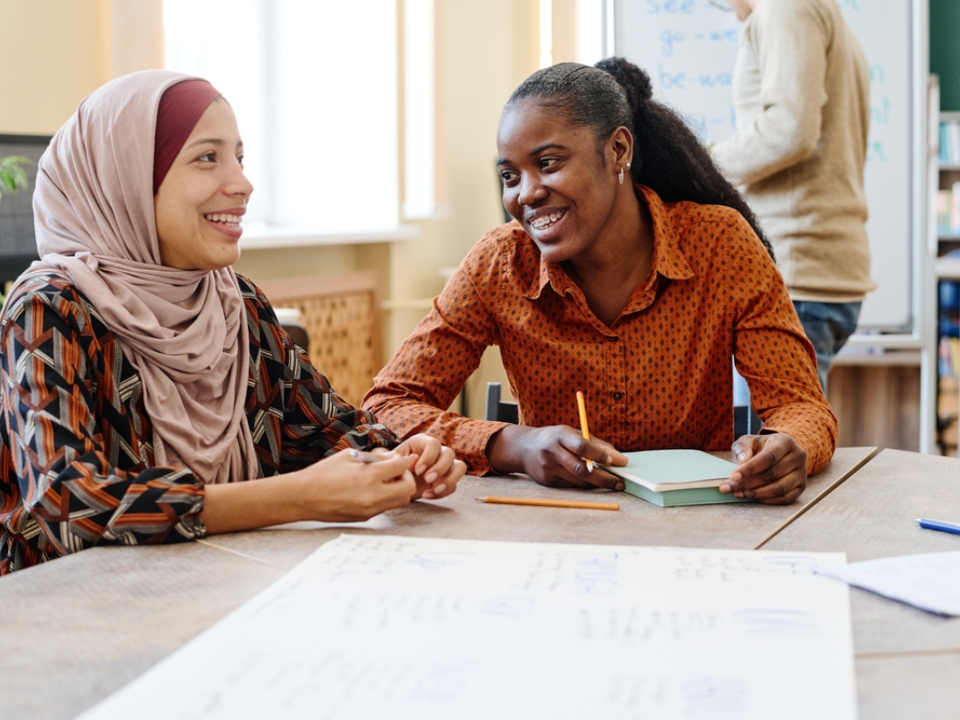13 Skills Everyone Should Learn in Their Lifetime
Everyone has the potential to learn valuable skills that make life easier and more enjoyable. Some abilities, whether practical or creative, can have a lasting impact on your personal and professional life. It is exciting to discover new things and unlock hidden potential within yourself. As you move forward, these skills will help you face challenges with more ease and confidence.
This post may contain affiliate links, which helps keep this content free. Please read our disclosure for more info.
Communication Skills

Good communication is essential in almost every aspect of life. It allows you to express your thoughts clearly, listen to others, and engage in meaningful conversations. By learning how to communicate well, you can build stronger relationships and resolve conflicts more effectively. Whether at work or in personal situations, clear communication helps avoid misunderstandings and ensures that everyone is on the same page.
In addition to speaking clearly, communication also involves non-verbal cues, like body language and tone. Being able to express yourself and understand others’ needs fosters better connections. It is a skill that requires practice, but once mastered, it enhances both professional and personal relationships. Strong communicators tend to have better opportunities for career advancement and personal satisfaction.
Financial Literacy

Understanding money and how to manage it is crucial for a secure future. Financial literacy involves knowing how to budget, save, invest, and avoid debt. These skills help you make informed decisions, avoid financial pitfalls, and plan for both short and long-term goals. With a solid grasp of financial concepts, you can take control of your spending and start building wealth.
Learning how to manage your finances properly can prevent stress and give you peace of mind. It also helps you understand the importance of saving for retirement, insurance, and other essential areas of your life. When you understand how money works, you can make smarter choices and avoid falling into financial traps. It is never too late to start learning these skills to improve your financial situation.
Time Management

Effective time management is one of the most valuable skills you can develop. It helps you prioritize tasks, meet deadlines, and reduce stress. With the ability to manage your time efficiently, you can make the most of your day, whether at work or at home. It also allows you to balance your responsibilities while making time for things that matter most to you.
Learning time management techniques, such as creating to-do lists, setting goals, and eliminating distractions, will help you stay organized and focused. You will become more productive and will have more free time for yourself. This skill is especially important in today’s fast-paced world, where managing various tasks can quickly become overwhelming. Mastering time management will allow you to achieve your goals with less effort.
Problem-Solving

Problem-solving is a skill that everyone needs in both personal and professional situations. It involves analyzing a problem, considering various solutions, and choosing the best course of action. Whether you are facing a work-related challenge or a personal dilemma, being able to think critically and find solutions is essential. The ability to solve problems effectively helps you navigate difficult situations with confidence.
In addition to critical thinking, problem-solving requires creativity and adaptability. Often, the best solutions come from thinking outside the box and remaining open to new ideas. Practicing problem-solving can increase your confidence and improve your ability to make decisions quickly. With this skill, you will find it easier to tackle challenges and become more resourceful.
Emotional Intelligence

Emotional intelligence (EQ) is the ability to recognize, understand, and manage your emotions and those of others. It involves empathy, self-awareness, and the ability to regulate emotions, especially in stressful situations. People with high emotional intelligence can build stronger relationships, resolve conflicts more effectively, and make better decisions. EQ is just as important, if not more important, than traditional intelligence in many aspects of life.
Learning to manage your emotions and understand others’ feelings helps you respond appropriately to different situations. It can also improve your ability to work in teams and be more approachable. Developing emotional intelligence enhances your leadership skills and helps you navigate complex social dynamics. Building a high EQ is an ongoing process, but it is an invaluable skill in both personal and professional settings.
Critical Thinking

Critical thinking involves the ability to analyze, evaluate, and make decisions based on logical reasoning. It helps you question assumptions, consider different perspectives, and make well-informed decisions. By learning critical thinking, you can approach problems with a clearer and more focused mindset. This skill is especially useful when facing complex issues that require a thoughtful approach.
Developing critical thinking skills requires practice and patience. It encourages you to think beyond surface-level information and assess situations more deeply. Being able to think critically also allows you to identify biases, solve problems creatively, and avoid common logical errors. By sharpening this skill, you will become a more effective decision-maker and problem-solver.
Basic Cooking Skills

Knowing how to cook is an essential skill for personal health and independence. It allows you to prepare nutritious meals and save money on eating out. Basic cooking skills, such as chopping, sautéing, and following recipes, are useful for preparing a variety of meals. By cooking at home, you can control the ingredients and ensure your meals are healthier.
Learning to cook also fosters creativity and can be a fun way to relax. You do not need to be a gourmet chef, but understanding the basics gives you the freedom to experiment in the kitchen. Whether you are making a quick breakfast or preparing a dinner party, cooking skills enhance your daily life. It is a practical skill that everyone should have, no matter their age.
Adaptability

Being adaptable means adjusting to new situations, challenges, and environments with ease. Life is full of unexpected changes, and the ability to adapt is essential for coping with those transitions. Whether it is a shift in your career or a personal change, adaptability helps you manage stress and maintain a positive outlook. Learning to embrace change allows you to thrive in uncertain conditions.
Adaptability involves being open to new ideas and being flexible in your approach. It helps you overcome setbacks and stay focused on your goals. People who are adaptable tend to be more resilient and able to find success despite obstacles. This skill is valuable in both personal growth and professional advancement.
Networking

Networking is an important skill for building professional relationships and opening up new opportunities. It involves connecting with people in your industry, community, or other areas of interest. Networking helps you exchange ideas, learn from others, and create valuable connections that can lead to career growth. Having a strong network can make it easier to find support, advice, and new opportunities.
To become a successful networker, it is important to build genuine relationships. Networking is not just about asking for favors but about offering help and collaborating with others. Developing this skill requires patience and practice, but it can pay off in the long run. Networking is about being present, making connections, and maintaining strong relationships.
Self-Care

Self-care is the practice of taking care of your physical, mental, and emotional well-being. It includes activities such as exercising, eating healthy, and managing stress. Learning how to prioritize self-care helps you maintain balance in a busy life. It is essential for preventing burnout and staying motivated.
Taking time for yourself is not selfish, since it is necessary for maintaining overall health. Self-care activities can be as simple as reading a book, taking a walk, or enjoying a hobby. When you practice self-care regularly, you will feel more energized and focused. It is an important skill that everyone should develop to live a healthy and balanced life.
Negotiation

Negotiation skills are crucial for securing favorable outcomes in both personal and professional situations. It involves understanding both your needs and the needs of others and finding a compromise. Whether you are negotiating a salary, making a purchase, or working on a team project, being able to negotiate effectively is essential. These skills help you get what you want without creating conflict.
Learning negotiation techniques, such as active listening and framing your proposals, will help you be more successful in any negotiation. Good negotiators know when to compromise and when to stand firm. The ability to negotiate helps you build stronger relationships and create win-win situations. It is a skill that is highly valued in business and personal interactions.
Conflict Resolution

Conflict is a natural part of life, and learning how to resolve it effectively is a key skill. Conflict resolution involves understanding different perspectives, staying calm, and finding solutions that satisfy everyone involved. Whether in the workplace or at home, knowing how to manage conflict helps you maintain healthy relationships. This skill encourages compromise and respect, which are vital for long-term success.
Practicing conflict resolution involves improving communication and emotional intelligence. It helps you avoid unnecessary tension and move toward productive solutions. People with strong conflict resolution skills are more likely to maintain positive relationships and work in harmonious environments. This skill is vital in both personal and professional settings.
Self-Discipline

Self-discipline is the ability to stay focused and motivated to achieve your goals. It involves resisting distractions, managing your time, and sticking to a plan. People with self-discipline can work toward long-term objectives while maintaining balance in their lives. This skill is essential for success in almost every area of life, from education to career to personal growth.
Developing self-discipline takes practice, but it is worth the effort. It requires you to make consistent decisions that align with your goals, even when it is tempting to take shortcuts. When you have strong self-discipline, you will be able to achieve more in less time. This skill is a major factor in reaching your full potential and succeeding in life.
This article originally appeared on Avocadu.
